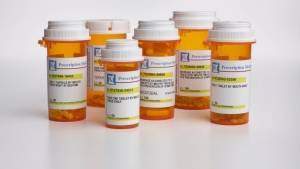Driving Under the Influence of Ambien (Zolpidem)
Driving under the influence of drugs, also known as DUI Drugs, is a very serious traffic offense, and our experienced DUI lawyers represent more and more clients each year who were stopped by police and arrested for DUI Drugs. A lot of our past clients ended up taking prescription drugs alone or using them in combination with alcohol, and then getting behind the wheel.
Ambien side effects – Ambien sleep driving defense

DUI Ambien – Lack of intent to drive – Unconscious driving
Drugged driving is the fastest growing type of driving while impaired cases we handle each year. Some drivers may not know how quickly Zolpidem starts to take effect, which usually is in about 15 minutes. A driver will take an Ambien (a brand name for Zolpidem) and then get in their car and head for home 30 minutes away. Or someone will have a few glasses of wine for dinner, take an Ambien, and expect to make it home safely. Ambien and alcohol are a recipe for disaster. Our top-rated DUI attorneys have seen a lot of these situations, and have successfully represented clients who wake up in jail with no recollection of driving the night before. The other two most heavily prescribed sleep medications are Sonata (Zaleplon) and Lunesta (Eszopiclone). Both have the same side effects as Ambien and should never be taken before or during driving. If you were arrested for drugged driving, our criminal defense attorneys can show you how we vigorously defend against incriminating police videos and dismal performances on field sobriety tests.
Sleep driving while on Ambien – Prescription medication – Prescribed medication – Impaired driving
Sleep driving while on Zolpidem is very dangerous but is a very real fact on our roads today. Sleep disorder drugs, or sedative hypnotics, are drugs which depress or slow down bodily functions. Often, these drugs are referred to as tranquilizers, sleeping pills, or sedatives. If you take any of these classes of prescription medication and operate a motor vehicle, you run a high risk of being arrested for DUI Drugs or DWI Drugs. Not all people who take sedative-hypnotics will get so “knocked out” that driving is dangerous. These people may be long-term users of these drugs, and have adapted to the side effects. Our team of criminal lawyers mainly represents clients who are new to these drugs and are unaware of how powerful they can be. This leads to intoxicated driving, breaking of state DUI laws, and arrest for DUI. DUI laws across the country all prohibit driving under the influence of drugs.
Affirmative defense – Intent to take medication – Unintentionally operating a vehicle
Our top-reviewed drunk driving lawyers have successfully represented clients who had no intention of driving under the influence of drugs but were forced to drive because of an immediate emergency. For example, a person will take an Ambien at bedtime, but a medical emergency forces them to drive their child to the emergency room. On the way to the hospital, a police officer pulls our client over for speeding and subsequently arrests our client for misdemeanor drugged driving. Or our client is involved in an auto accident where someone is killed, and felony charges of vehicular manslaughter or vehicular homicide are filed against our client. In this case we can raise what is known as an “affirmative defense,” whereby our goal is to prove our client had to unintentionally operate a vehicle out of necessity. The state must prove you intended to drive, but a good criminal attorney will fight back against this prosecutor’s line of attack.
More DUI Drugs Resources
If you’d like to learn more about DUI for prescription drugs, take a look at some of our comprehensive articles on the subject below:

